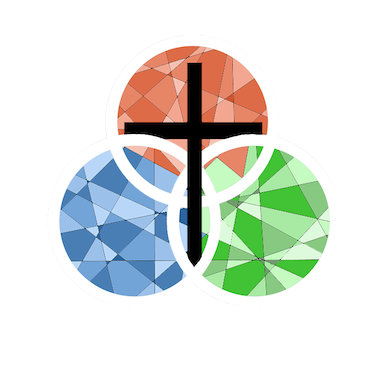It has been a hard week for all of us as we continue to grieve the sudden and unexpected loss of our dear friend, Judy Evans. Judy served this church wisely and faithfully in so many ways—as President, Council member, parish nurse, church musician and choir member, active participant in our Tanzania ministry, and most recently, a trusted advisor to me as part of our Mutual Ministry Review Team. Her delightful presence and spirit will be missed in so many ways.
This past week I have been meeting and coordinating with her family and friends to plan her memorial service, which will take place in our church on Friday, May 31, at 11 a.m. I just received from her family the final text of her obituary, which I share below. She was such a private person that I think many of us had no idea what an accomplished and rich life she led. May she rest in peace and rise in glory.
A Tribute to Judy Evans
Judith Ann Evans of Portsmouth passed away on May 16, 2024, at age 79 following a brief illness. Judy went peacefully, having led a full and accomplished life.
Judy was born in Brooklyn and grew up in Syosset on Long Island, where she graduated from Syosset High School. She attended the University of Rochester, where she received her Bachelors of Sciences in Nursing. Following graduation, Judy worked as a nurse in New York City for over a decade, before becoming the Director of Medical Nursing at Baystate Medical Center in Springfield in 1979.
After three years in Springfield, Judy took a role with the National Institutes of Health. While in the DC area, she received her Masters in Nursing from Catholic University of America before working as an Associate Director at Bellevue Hospital in New York and Director of Critical Care at Temple University Hospital in Philadelphia.
Judy moved into the field of nursing education in the late 1980s, serving as an instructor, adjunct professor, and assistant professor at Widener University, Rutgers University, and received her Doctorate in Nursing Education from Teachers’ College, Columbia University in 1996. After spending nearly all her life in the Mid-Atlantic, Judy began a new chapter in New England when she moved to New Hampshire in 1992 and began teaching at the University of New Hampshire. Following a three-year stint as the Director of Education and Clinical Guidelines at the Lahey Clinic, Judy was named Assistant Director of Nursing Education for the New Hampshire Board of Nursing, while also returning to teach at UNH. In 2007 she was named Founding Director of the Nursing Education Programs at Franklin Pierce University. Judy received the 2008 Award for Excellence in Nursing Leadership from the New Hampshire Organization of Nurses. She retired from Franklin Pierce in 2010.
Judy filled her life with family and friends. She did annual summer vacations to Cape Cod with her brother, Rich, and his family, and her desserts were a highlight at family gatherings for birthdays and holidays. She traveled the globe with friends and church groups, including trips to Tanzania, where she climbed Mount Kilimanjaro, and the Galapagos Islands.
A lover of flowers and gardening, Judy also enjoyed the outdoors. She was an avid kayaker for years and relished her time at the beach. Her church community at Holy Trinity Evangelical Lutheran Church in Newington was hugely important to Judy, and she served in leadership roles within the church.
Judy also had a fondness for reading and the arts. She played piano and sang, including with several choruses in the Seacoast area. She appreciated music in many forms, including classical music and frequently attended concerts. She also took up quilting and fabric art, becoming accomplished in the medium in her final years.
Judy will be missed greatly by her family, friends, and church community for her keen mind, her generosity of spirit, her love of life, and her amazing laugh.
Judy was preceded in death by her parents Leonard and Agnes Evans, and her brother, Richard Evans. She is survived by her brother, Paul Evans and his wife Ann, of Lafayette, California, her sister-in-law Marcia Evans of Southbury, Connecticut, her nephew Jon Evans of Walnut Creek, California, her nieces Catherine Evans of Somerville, Massachusetts, Leslie Evans of La Crescenta, California, and Jessica Summerfield of Santa Barbara, California, and her beloved cat, Korben.
In lieu of flowers, donations in Judy’s memory can be made to Friends of the Portsmouth Public Library.
